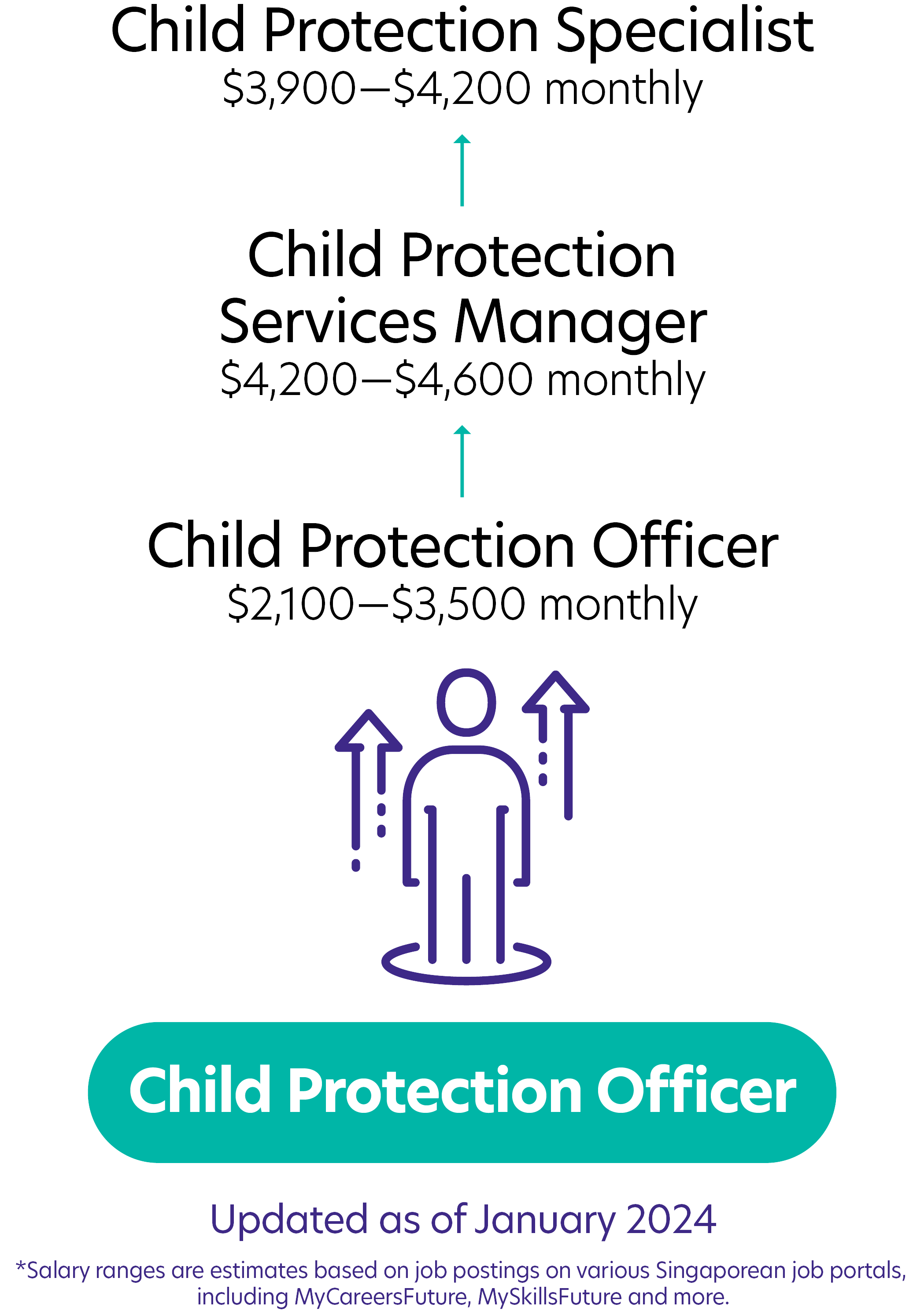
Child Protection Officers (CPOs) conduct social investigations and ensure the safety of children.
Child Protection Officer Job Description
- Investigate alleged child abuse and neglect cases.
- Conduct house visits to assess clients' needs and situations.
- Develop and implement safety plans and arrange support for clients.
- Facilitate contact sessions between parent and child and observe their interactions.
- Record case details and write reports.
- Advocate for clients’ rights and their interests.
Note
Child Protection Officers focus on investigating abuse or neglect, while Child Welfare aims at the resolution and rehabilitation of children, including providing community support to affected families.
What you should know about Child Protection Officer jobs in Singapore
Nature of Work
As Child Protection Officers, you must work calmly under stress, stand firm, and manage reluctant clients effectively.Key Advice
Facing backlash for child safety measures, including fostering to separate them from parents, is a challenge you must navigate.-
Entry RequirementsEntry Requirements
- Tertiary qualification in Social Work, Psychology or related disciplines (Social Sciences) is required.
- Go for volunteering experience and work in the Social Service sector. This will be advantageous!
- Obtain relevant certifications through programmes which cover topics such as child abuse prevention, risk assessment and intervention strategies.
-
Possible PathwayPossible Pathway

Skills you need to pursue a Child Protection Officer career in Singapore
 Hard Skills
Hard Skills
Social Investigation
Skilled in investigating child abuse/neglect cases, from interviews to evidence gathering and assessments.Counselling
Skills in providing emotional support and guidance to children and families, often in distressing situations.Conflict Management
Skilled in managing and resolving conflicts for optimal outcomes for children and families.Interpersonal Skills
Skilled in building rapport, communicating, and teamwork with children, families, and professionals.Empathy
Deep empathy and sensitivity towards the experiences and emotions of children in vulnerable situations.Emotional Resilience
Ability to manage stress and maintain professionalism in challenging child protection scenarios.Explore Other Programmes
Browse AllYou have bookmarked your first item!
Find it in My Discoveries with insights on your interests!



